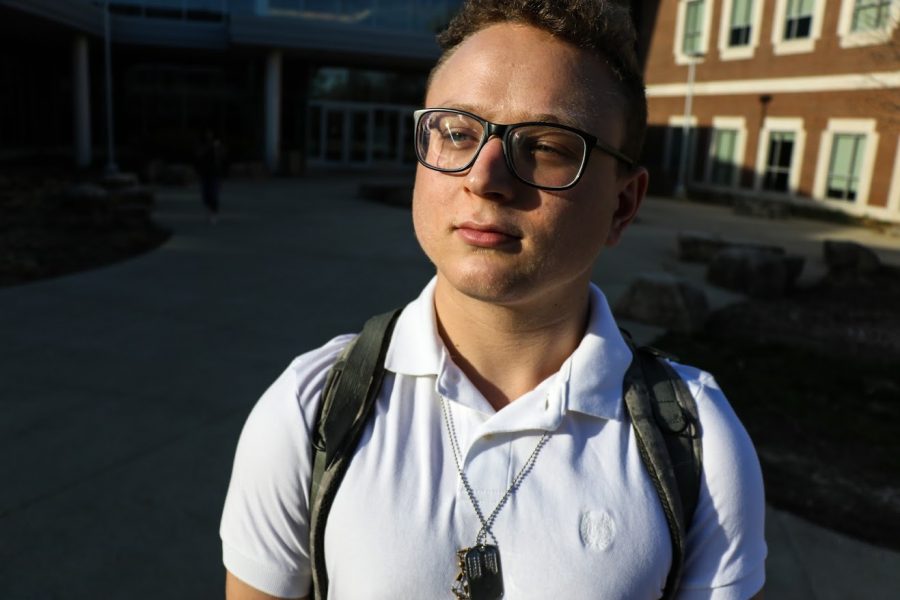Relay For Life fundraises for cancer research
Ben Gulizia-Cowing is a cancer survivor and freshman in LAS at the University. On Friday, Colleges Against Cancer will be hosting Relay for Life as a fundraising event for cancer research and to raise cancer awareness on campus.
Apr 11, 2019
Ben Gulizia-Cowing was 13 years old when he was diagnosed with pediatric cancer. He spent most of his teenage years battling cancer, consequently affecting his high school experience and shaping his personality.
“I’m a lot more empathetic now,” Gulizia-Cowing said. “Cancer definitely opened me up, wisened me up and aged me a little beyond my years. It’s definitely changed who I am as a person.”
Gulizia-Cowing, a cancer survivor and freshman in LAS, is a member of the University’s Colleges Against Cancer chapter, the first campus chapter in the country. The RSO, affiliated with the American Cancer Society, aims to raise cancer awareness, fundraise for cancer research and facilitate connections between people affected by cancer on campus.
CAC will be hosting Relay For Life, an annual fundraising event, on Friday from 6 p.m. to 2 a.m. on the Main Quad with the theme “Paint the Quad Purple.” The RSO hopes to reach its fundraising goal of 75,000 dollars and an extra goal of 180,000 dollars, approximately the amount of money a researcher need to receive a grant to do research at the University.
Mathias Morales, junior in LAS and vice president of event development for CAC, said a misconception about cancer research is that there is an all-encompassing “cure.”
Get The Daily Illini in your inbox!
“There have already been several cures discovered that work for a specific population in a specific cancer,” Morales said. “Cures have been discovered, so really, we should be encouraging the advancements of more cures and more general cures that help a variety of cancer types. These, of course, are much less effective and harder to produce but will impact a larger group of patients.”
Morales said current cures are often “cocktails” of different drugs tailored for specific cancer patients whose profiles can be shared among doctors to study. The difficult part is figuring out which combination works best for each patient.
Morales has researched toxins with the potential to treat cancer more directly by targeting only cancer cells. In treatments such as chemotherapy, all rapidly dividing cells, including cancer cells are targeted. Therefore, healthy cells that share similar characteristics as cancer cells, such as the epithelial cells in hair, are damaged as well, causing side effects such as hair loss. Cell-specific treatments allow doctors to target a tumor’s core without damaging the rest of the body, providing a more effective alternative to chemotherapy.
Marga Hempel, junior in LAS and CAC’s vice president of student engagement, said club members range from student survivors to student researchers to students who have personal connections with cancer through relatives or friends.
Gulizia-Cowing received similar support while he was going through treatment at Camp One Step, a camp to support children with cancer. He went to the camp the summer after he was diagnosed, angry at the time. But the camp made him feel like a normal teenager again and helped rebuild his sense of identity.
“It really saved me, and I’ve been going every year since,” he said. “The people there are so supportive, and they know exactly what you are going through. Those guys are my rock. I will definitely start volunteering there in the future.”
Hempel said one of the most common misconceptions is cancer impacts only older people.
“We don’t always think about our health that much when we’re stressed out about school,” Hempel said. “It’s important for college students to be aware of any changes that are happening to their bodies and get tested when necessary because this is a pivotal time in our lives.”
CAC sees Friday’s event as an opportunity to educate the campus population.
“Cancer still has this negative stigma attached to it that prevents it from being talked about in conversation,” Morales said. “When it is mentioned, bad news typically follows. Part of CAC’s mission is to help remove this stigma and get the conversation going so that new ideas can form and young scientists become more motivated to fight the disease.”
Resources for students interested in learning more about cancer include Cancer Center informational events and CAC’s Hope Talks, an outreach program.
Relay for Life will feature performances from the Velocity dance team, Women’s Glee Club, Illini N Motion dance team and others. Games throughout the night include corn hole, giant Jenga and spike ball. Dinner and food for all registered participants will be sponsored by Black Dog, Buffalo Wild Wings and El Toro, as well as food trucks around the Main Quad.
Students who are interested can sign up for the event online or the day of for a $15 registration fee.
“When I was battling cancer what I heard a lot is ‘You’ve got this’ and ‘You’re so brave,’” Gulizia-Cowing said. “These really just feel like it’s guilt and pressure-induced. So to all the people still battling cancer, I would say it’s ok to not be ok. It’s ok to need help. It seems bad and it is bad now — but it does get better.”






